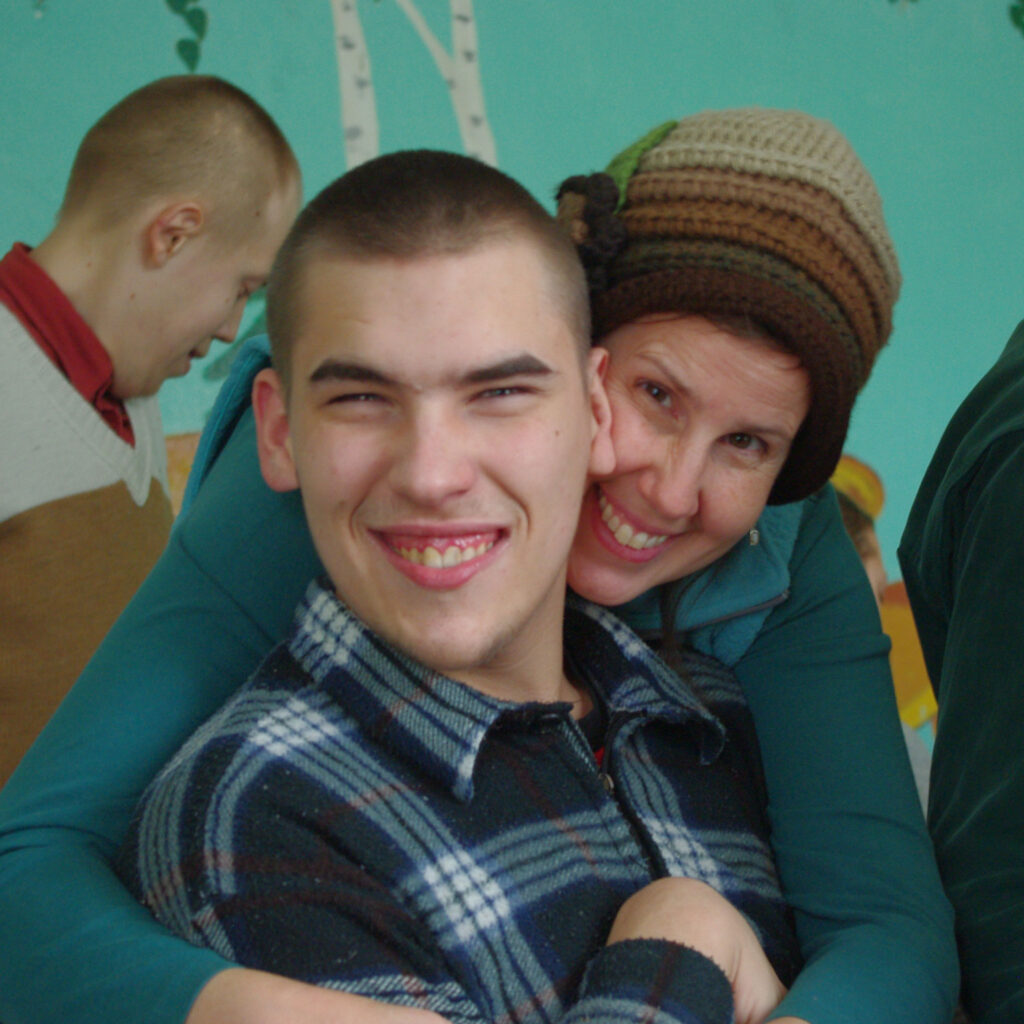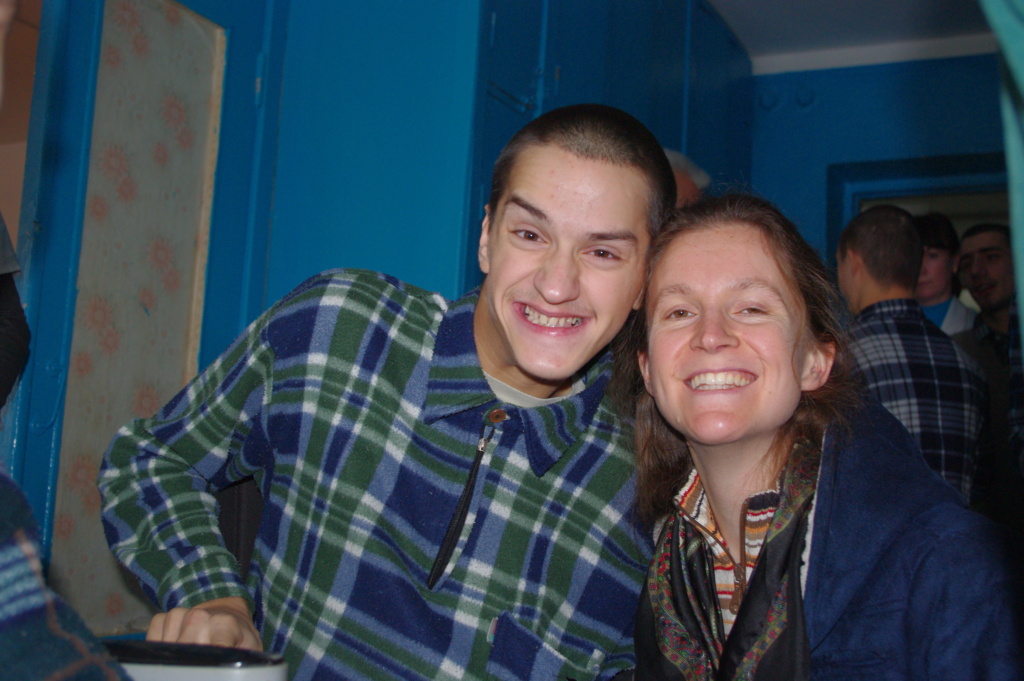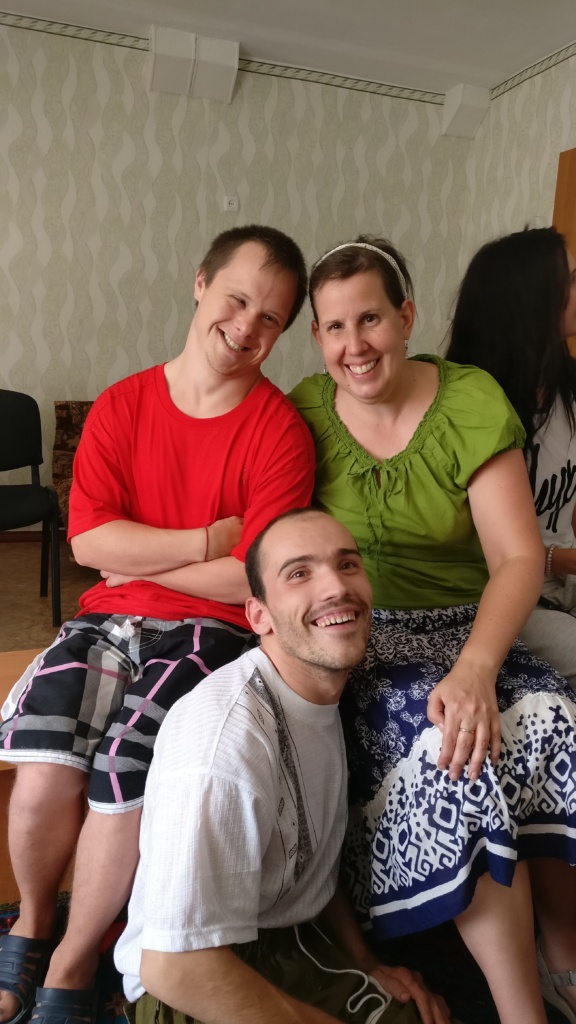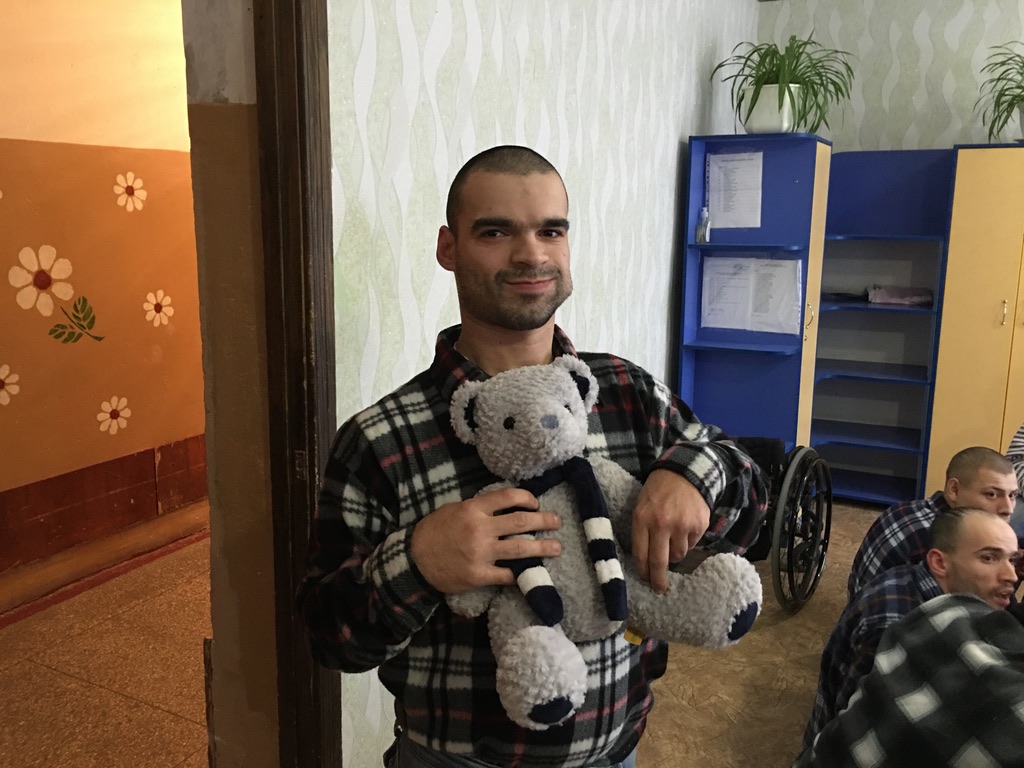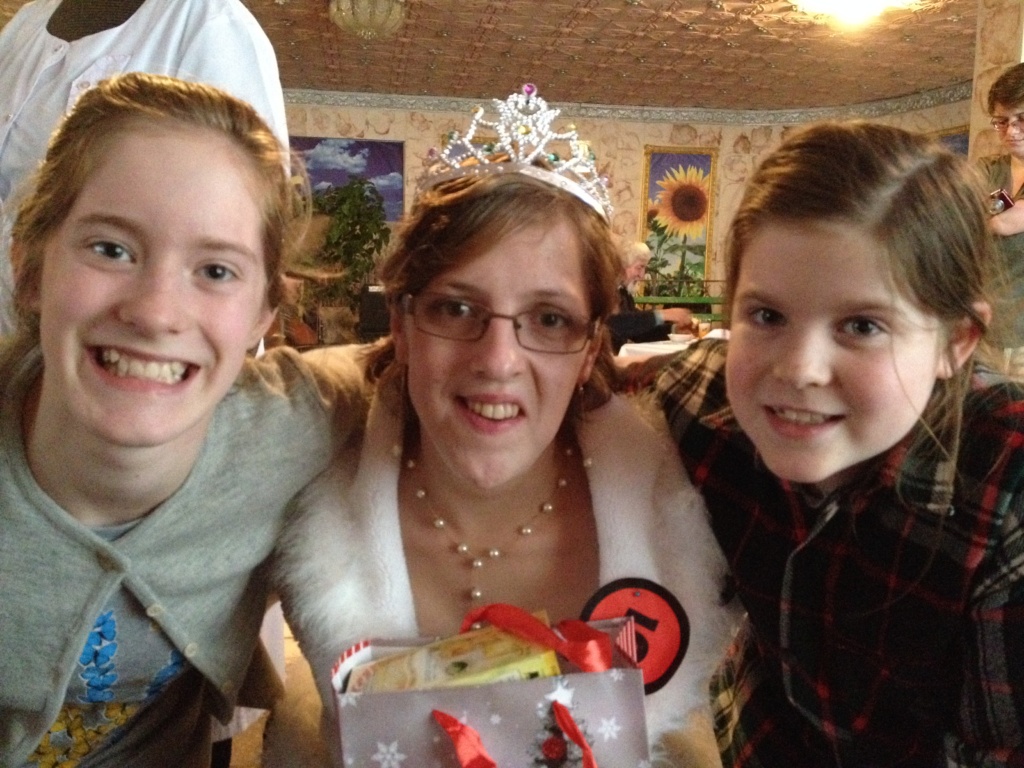In the following experiences shared, the names are changed for protection of our friends.
There was a young lady, a sweet orphan, living at the Orphanage in Oleshky in 2009, she graduated from the school, but because her mother did not want her, she was put into an institution in Simferopol, this is her story.
We met Polly, the first time I visited the orphanage in 2006, a beautiful young woman with cerebral palsy, bound to a wheelchair, but eager to be a part of life. She knew months prior to her graduation from the orphanage, that her mother would not take her home. Polly, like all orphans, translate this as “I am unwanted and unloved”. Polly met her husband at the old-folks home in Simferopol, not long after she was moved there, she was 18 years old. For him it was love at first sight, but Polly took longer to come around to the idea. When he brought her to the saving knowledge of Jesus Christ, he also won his bride’s heart too.
They were married against his and her moms’ will and against the will of the state institution. They were threatened to be kicked out if they married, but thankfully the threat was simply that, no more.
They lived together in a room in the institution on the third floor. Most elevators in Ukraine may fit 2 people comfortably, standing, but not wheelchairs. So Polly and her husband rode the cargo elevator; oh she got used to it – she’s had no other choice. At the Oleshky orphanage, any time the children are escorted, mostly to the hospital, they’re placed in the back of a truck like cargo. This is humiliating, but a part of life for them, they don’t know any differently.
Polly, becoming pregnant with their second child, in 2013 caused lots of challenges. She was forced to abort her first baby as children are not allowed in the old folks home. She had complications after the abortion, but conceived again, as a plan. Polly and her husband knew they would be asked once again to leave the home, but they were willing do anything to get out. What they did not anticipate was the government saying they would take away their child after her birth. Just 10 days after giving birth to their little girl, Ruth, the government did just that. Polly’s husband went to court and fought to be recognized as Ruth’s father, but was denied on grounds that he was not fit to care for his daughter because of having epilepsy and needing to use a wheelchair. The court did not even see Polly fit to consider as the child’s mother. The couple was heart broken.
This was the first experience, walking alongside an orphan, moving from one institution that had become her home, to another that was completely foreign and unknown. Growing up at an orphanage, you rarely ever leave the walls of the institution, so forcefully being moving to another, hours away where you don’t know a soul is frightening. One of the young men we desire still, to move into Stephen’s Home, Yura, was moved to the institution in Dnepriany with a good friend of his. A visit was made to share with them, just a bit after they were moved, and Yura shared, through tears just pouring down his face, that he wasn’t supposed to be moved “here,” that there was a better place for him. He didn’t want to have to stay as his heart was broken. Yura has a very simple understanding of life, but this heart cry has been real for every orphan moved.
Dnipriany Institution
Yura, Vitia, Sasha and Stas live, it is a men’s institution for 160 men where there are only floor two levels in this institution. These guys in wheelchairs live on the first floor where the cafeteria is located.
Vitia and Sasha have cerebral palsy that limit their movements, but that’s not a huge challenge as there is not any activity to do most days. There is one room for visitors were we meet them every month when we visit, when they are not under quarantine. Calling ahead is always required because the director has to allow permission for the locked gate to be open to us, despite the fact that we come regularly and bring needs, wants and gifts.
Kairy Institution
Kyryl, Sasha, Slava and Serhii currently reside is an institutional building intended to house 500 men, currently there are 350 residing there. It’s located in a beautiful region, but once again the men are not allowed to leave the premises. Many other young men from the Oleshky Orphanage also reside here, we see new faces we recognized as the years roll by. We hear such hopelessness and tears from the men here, simply wanting freedom and an opportunity experience life outside the confines of walls. We sincerely hope and pray that Stephen’s Home will be the initial home of many, and that more of the men, in the years to come, will be living in or near Darivka with a family in a group home.
Ushkolka Institution
A men’s institution that is out, way out on the cliffs in a little village. The buildings that form this institution are on the edge of town, but not separated from it. Because the village is so remote, the outhouse is what is used, located to the front left side of the building, by the 130 male residents who live there.
Those in wheelchairs do not use the cafeteria because the recently added access ramp really is too steep to be considered accessible. When we last visited Artem, it took 4 guys to help get him up the ramp and into the hall so we could share some time with him. Most men in this institution are older, there are only four, including Artem, who are young, in their twenties. These four guys have a social service representative that works with them.
Kamyshany Institution
A women’s institution in a suburb on the edge of Kherson where a special young lady, Khrystyna lives. This institution is home to 400 disabled ladies and again, is placed on the edge of town, walled in. And though the buildings are not far from town, the entrance is placed on the far side of the institution facing the forest, so those that come and go have to have a reason and purpose to be on the road.
No, the country of Ukraine is no longer under the Soviet Regime, but the mentality and understanding from that time is still holding many men and women captive. We hope to set them free.

